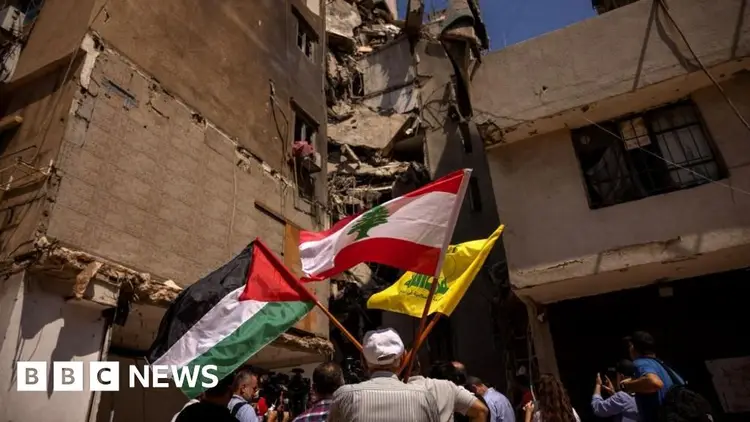Hezbollah pager explosions highlight shadow war

If we take it for granted, as most analysts agree, that Israel conducted the remarkable mass pager attack on Hezbollah earlier this week, what insights can we glean about Israel's mindset?
Without any official statements from Israel, it's necessary to interpret the situation through inference and context.
A former Israeli intelligence officer I spoke with shared his hesitance to speak out by referencing a Talmud quote: “During times like these, the wise choose to remain silent.”
Considering the bold and shocking nature of the attack that took place yesterday, it appears that it was intended to inflict significant physical, mental, and technological harm on one of Israel's strongest adversaries.
However, reports coming out of Lebanon indicate that Israel might not have meant to deploy this catastrophic weapon at this time.
The overwhelming impact that such an attack would create was likely being kept in reserve for a time of greatest necessity: either just before Israel intended to launch a significant offensive against Lebanon or when it sensed that Hezbollah might take the initiative.
It seems that neither of these scenarios is accurate, which supports claims that Israel activated the explosive devices because it feared its plan had been discovered or was about to be exposed.
Regardless of the actual circumstances, this incident occurs during a period when Israel is actively working, both openly and secretly, to confront the danger presented by Hezbollah and its alleged stockpile of 150,000 accurate missiles and rockets.
Beyond the routine airstrikes on Hezbollah positions, which the Israeli military diligently reports to the media, an unclear and covert conflict is taking place.
A week and a half ago, Israeli special forces launched a bold operation targeting a military site in Syria that is suspected to be involved in the development of ballistic missiles, which was constructed with Iranian assistance.
Commandos were deployed from helicopters, set explosives within the underground facility, and collected crucial data.
Some reports indicated that they may have detained people, potentially of Iranian nationality, who were employed at that location.
Six weeks ago, Israel carried out the assassination of Fuad Shukr, a senior military leader within Hezbollah.
According to a report from the Wall Street Journal, shortly before the assault, Shukr was sent a message instructing him to return to his apartment on the seventh floor, making him a more vulnerable target.
Hezbollah strongly rejected the claims, but the events that unfolded yesterday indicate that their networks, including supply routes and communications, seem to be significantly compromised.
The group supported by Iran is certainly doing everything it can to resist, launching rockets into northern Israel and sometimes attempting its own secret missions.
On Tuesday morning, Israel reported that it had prevented an assassination attempt on a former security official by using a remote-controlled explosive device.
Hezbollah has promised to respond to the large-scale attack that took place on Tuesday. Due to the severe injuries suffered by many of its members and the immediate need for the group to address this serious security lapse, their quest for revenge might have to be postponed. However, it's certain that they will seek vengeance eventually.
This leads us to a crucial inquiry: what, if anything, has truly shifted? The conflict between Israel and Hezbollah, both openly and behind the scenes, continues.
Israel's recently stated goal for the war – to return displaced residents to the evacuated areas near the northern border – has not made any progress.
Even with much intense discussion happening in Israel, it seems that the military is not preparing to launch an invasion of southern Lebanon.
That could potentially occur. The people of Israel are understandably exhausted from nearly a year of uncertainty in the northern region.
However, Israel continues its military actions in Gaza, with the announcement on Tuesday of four additional soldiers' fatalities. The possibility of launching another significant ground offensive is not met with unanimous support.
A survey conducted by Channel 13 News revealed that 52% of Israelis support a large-scale conflict in Lebanon, while 30% are opposed to it and 18% remain unsure.
Despite Israel's numerous strategic maneuvers, it's difficult to determine the future direction of the ongoing conflict with Hezbollah.







































